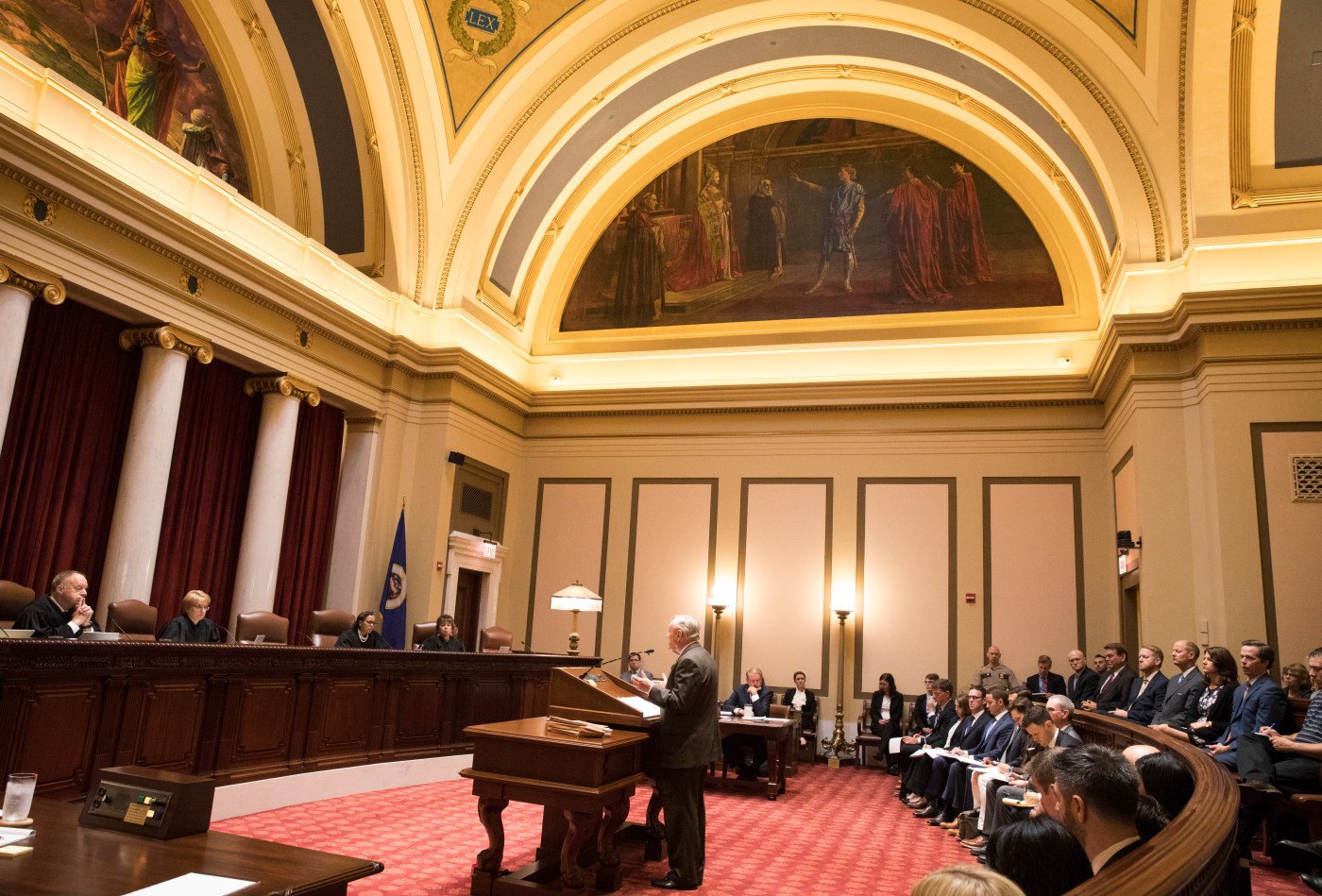
School race imbalance must hurt performance to be unconstitutional, MN Supreme Court rules
Whether racial segregation in schools violates the state constitution depends on whether it has a significant negative effect on educational outcomes for students, the Minnesota Supreme Court ruled Wednesday.
It’s the latest ruling in the 2015 lawsuit brought by St. Paul parent Alejandro Cruz-Guzman, attorney Dan Shulman and other parents over school segregation which could lead to policy changes forcing policies integrating highly segregated Twin Cities schools.
In their lawsuit, they argue the state is feeding segregation by allowing single-race charter schools and allowing families to enroll outside of assigned school districts. A group of charter schools opposed to the changes have intervened in the lawsuit.
A majority of justices on the state Supreme Court on Wednesday said racial imbalances in St. Paul and Minneapolis public schools when compared to other states are not sufficient on their own to establish a violation of the state constitution’s Education Clause. Instead, they need to prove there were worse outcomes as a result.
“Although the parents do not need to prove that state action caused the racial imbalances … they must prove that racially imbalanced schools are a substantial factor in causing their children to receive an inadequate education,” wrote Associate Justice Margaret H. Chutich.
Questions on segregation return to lower courts
The Supreme Court’s ruling means the questions on segregation will return to Hennepin County District Court, where a judge will have to weigh whether segregation resulted in children getting an inadequate education.
In their lawsuit Cruz-Guzman and others argued Minnesota’s failure to integrate public schools denied racial minorities their constitutional right to an education. Minnesota’s constitution has an education clause requiring the state to establish a uniform public school system.
The lawsuit was dismissed by a court of appeals panel in 2017 but revived a year later when the state’s Supreme Court overturned their decision.
In 2021, Cruz-Guzman and the state reached a tentative settlement agreement that would have required the state to create new magnet schools and new regulations for segregated charter schools, and a system of voluntary bussing to help integrate suburban and city schools. It was expected to cost the state about $63 million and would have required legislative approval.
Legislature didn’t act on settlement
After the Legislature didn’t take action on the settlement, a lawyer for Cruz-Guzman asked Hennepin County District Judge Susan Robiner to rule on whether school segregation was unconstitutional even if it did not happen intentionally.
Robiner found it would have to be intentional, and the Minnesota Court of Appeals sided with her in 2022. The appeals court panel unanimously ruled that racially segregated schools don’t violate the state’s constitution.
The case then went to the Minnesota Supreme Court, which heard arguments in May.
Justices ruled to return the case to district court 4-1, with Chief Justice Natalie Hudson dissenting and Justice Associate Justice Karl Procaccini taking no part as he was not on the court when the case was submitted.
Hudson in her dissent said segregation itself was a violation of the Education Clause as it violated the Legislature’s duty to provide adequate education to all Minnesota students.
“Although segregation in public schools is no longer mandated by ordinances and statutes, a confluence of public and private forces have kept the ugly heritage of segregation alive,” she wrote.
Related Articles
Minnesota down to 3 final concepts for new state flag
Minnesota flag finalists were on display at Mall of America last weekend
MDH to host virtual hearing on Allina moving adolescent mental health beds from St. Paul to Minneapolis
Minnesota expects $2.4 billion surplus, but shortfall on horizon
DFLer Bianca Virnig wins special election for vacant Dakota County House seat


